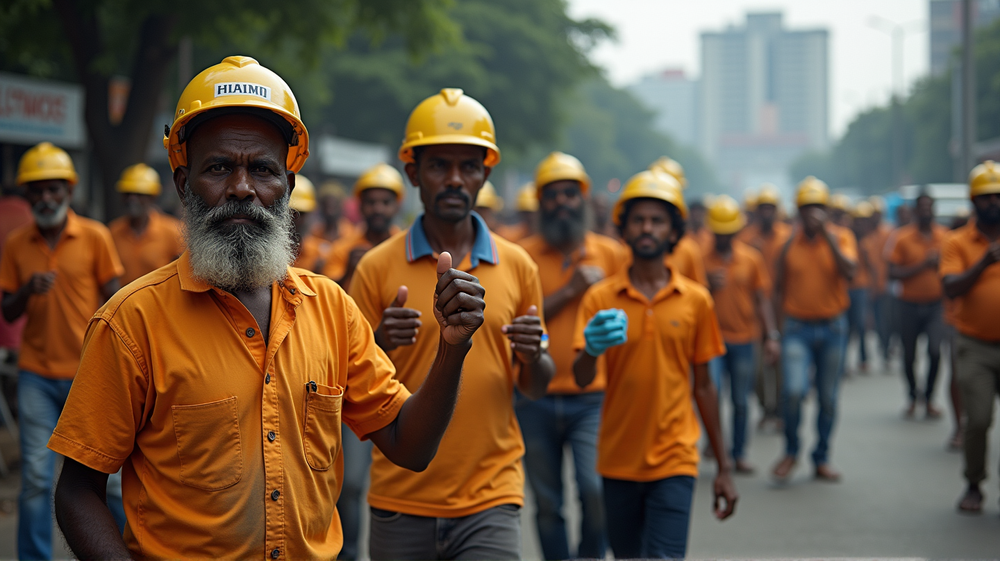Dignity Over Development: Aathi Thamizhar Peravai's Standpoint
The Clash of Ideologies
The ongoing protests by conservancy workers in Chennai bring to light a profound ideological clash. As CPI (M) supports the demand for job conservancy, R. Adhiyaman of Aathi Thamizhar Peravai prioritizes dignity and self-respect over economic development. According to The Hindu, this debate reflects the different priorities of the Communist and Periyarist movements in addressing workers’ rights.
The Weight of Dignity
In a passionate response, Mr. Adhiyaman underscores that the pursuit of permanent government jobs for conservancy workers does not guarantee dignity. He highlights the Supreme Court’s 2013 verdict to abolish manual scavenging and questions the inclusivity of the workforce in this context, pointing out the continuous exploitation of certain castes.
A Call for Equal Opportunities
The concern is not merely about employment but ensuring that no caste or individual is relegated to undignified work. Adhiyaman recalls the scenario in Coimbatore, where conservancy job allocations reflected skewed caste-based practices. His challenge to Comrade Shanmugam focuses on inclusivity and rectifying systemic injustices within the labor force.
Toward a Brighter Future
For Mr. Adhiyaman, the answer lies in rehabilitating conservancy workers, steering them away from the stigmatized work they are often forced into. While acknowledging the economic exploitation inherent in contractual work, he stands firm against making such jobs permanent, citing the generational cycle of indignity he observes.
A Critical Reflection
The crux of this argument invites reflection on how society values certain forms of labor and the broader implications of governmental and ideological support. Mr. Adhiyaman’s stance asks whether economic advancement should ever come at the cost of dignity and self-respect, pushing for a reassessment of our societal values.
In addressing these pivotal issues, the divergence between economic goals and human dignity becomes more evident, posing crucial questions for social reform movements and policy-makers alike.




